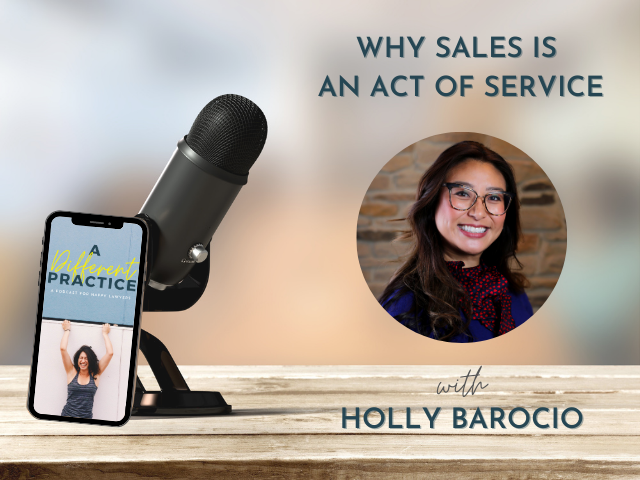Sales
Whether we like it or not, we’re all in sales. If you own your own business, you’re in sales. Every time you talk to a prospective client about engaging your legal services, you’re in sales. We just don’t think of it that way because we aren’t in a low-budget commercial screaming, “Come on down!”
Unlike marketing, which speaks to a wide audience, sales is a one-on-one conversation. Both you and the prospective client are figuring out if working together is a good fit. While the client will likely have specific questions, during a sales meeting (or consultation) we as the lawyer should not be the one doing all the talking. Because the sales process isn’t about us at all. It’s about the client.
I spend most of my consultations asking lots of questions and then closely listening. While the dynamic is certainly conversational, I’m working through a predefined structure to gather the pertinent information I need. The process starts even before I chat with the prospect because they’ve filled out a customized intake form. With that initial information in hand, I ask questions about:
- How soon they expect to make a decision
- Where they are in the court or litigation process
- What are they concerned about
- Whether they’ve spoken with other lawyers
- What success looks like
- What kind of help they are looking for
- What their budget is or what they’d ideally like to spend (yes, really)
Just as lawyers don’t come in a one-size-fits-all mold, our practices shouldn’t either. We shouldn’t have just one service offering for a certain type of case. Based on the potential client’s answers to my questions, a customized solution can be created that will best fit their needs. Only after the prospect has talked most of the time, answered all my questions, and shown they would be a good fit as a client,
Unless the prospect asks a specific question about it, at no point in this sales process do I talk about me. Ever. I don’t talk about where I went to school or how long I’ve been practicing. I don’t talk about accolades or organizations or memberships. Why? Because it’s not about me. It’s about them. It’s about listening to their problems and offering a solution. If your solution doesn’t work for them, that’s ok. Not everyone is a good fit. But if it does – bam! You just made a sale, you salesperson, you.
And you did it all with out sleazy tactics, cheap graphics, or late-night commercials. You just had a conversation.
How do your sales meets go now? What questions are you asking? Is the prospective client talking more than you?





